Book Review: The Potency of Ungovernable Impulses, by Malka Older
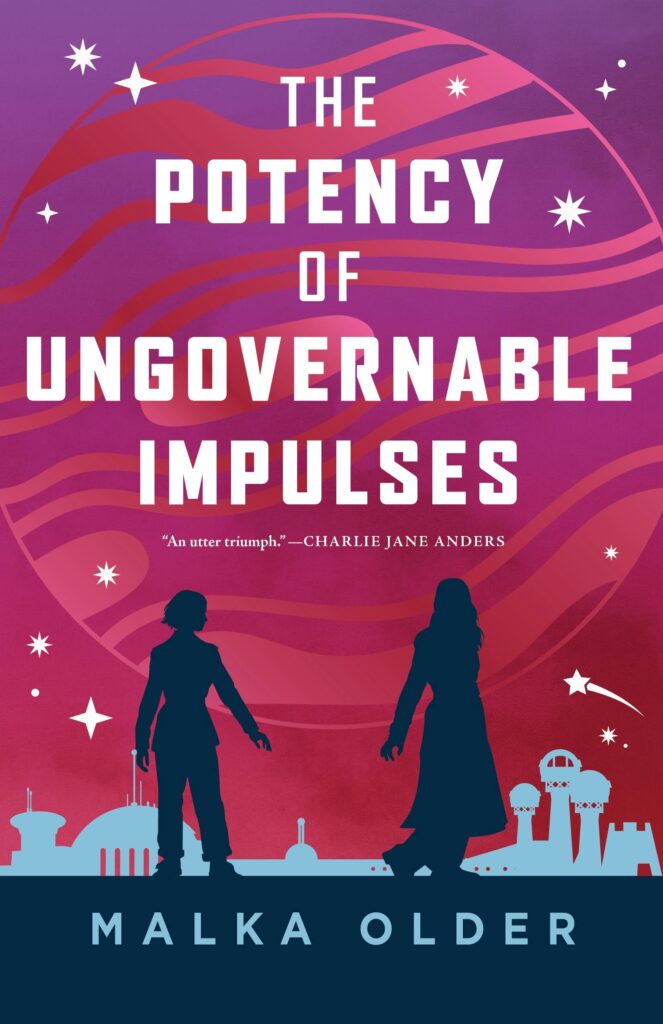
Malka Older makes a rousing return to her acclaimed SF mystery/romance series, The Investigations of Mossa and Pleiti, with The Potency of Ungovernable Impulses, coming out June 10. The novella that started the series, The Mimicking of Known Successes, was amazingly great (I reviewed it here), and I quite enjoyed the sequel, The Imposition of Unnecessary Obstacles. The latest book is the longest so far, but at 256 pages it feels just right. The mystery seems to have lower stakes than in previous books, but it also highlights previously unexplored aspects of the Giant (Jovian) society and returns to some elements of previous books that hadn’t exactly been resolved after all. The romance between Pleiti and Mossa undergoes some severe friction, but in the end … well, read it and see! I don’t advise jumping into the latest book if you’re new to Mossa and Pleiti; start with the first novella, since the relationship and the worldbuilding are complex and continue to develop throughout the series. However, it’s not necessary to reread the earlier works to pick up the series again at this point (especially if you’ve already reread in the intervals like me), since Older includes plenty of reminder-references and context clues to prior situations. (I think if you skipped the second book for whatever reason, you can still read the third without too much difficulty.) The Potency of Ungovernable Impulses opens with a prologue of Mossa lurking outside Pleiti’s quarters, oddly reluctant to enter. The action starts in Chapter 1 with Petanj, an old Valdegeld University schoolmate, asking Pleiti for help; Petanj’s cousin Villette, a rising scholar-star at rival Stortellen U. who’s scheduled to be honored soon with a donship that’s relatively early in her career, has been receiving nasty anonymous notes and a false accusation of plagiarism. Petanj thinks that Pleiti, as a fellow scholar, will be less official, less intimidating, and more familiar with academic environments than Investigator Mossi, but hopefully familiar enough with the investigative process (given Pleiti’s somewhat notorious participation in prior investigations) to help resolve this problem and growing scandal. Pleiti asks Mossi to investigate with her anyway, or at least consult with her, but Mossa, sunken into a deep apathy or worse, refuses to even listen to the case, and sends Pleiti away. For much of the book, Pleiti doesn’t see Mossa, and frequently asks herself What Would Mossa Do as she embarks on the investigation, wondering whether she should have stayed with Mossa instead to help lift her spirits, since she doesn’t seem to be making much progress as she chats with various associates of Villette (pretending to be a mere curious visitor who’d come for the donship ceremony). Libel escalates to sabotage and worse, but the university leadership is more inclined to blame Villette as a trouble-inciter than to find the culprit(s?). In many ways, this book reminds me of the wonderful academic mystery/romance Gaudy Night (1935), by Dorothy Sayers. In that, Harriet Vane, a mystery novelist, is asked to investigate various “poison pen” notes at her alma mater, a women’s college at Oxford; she begins to feel out of her depth when the attacks move from libelous taunts to violence, and writes about the case to her unsuccessful suitor, the famous detective Lord Peter Wimsey. The Potency of Ungovernable Obstacles doesn’t address women’s roles in society the way Gaudy Night does, since the Jovians of the future appear to have moved beyond that (although I note that the highest leaders of both universities here are men). And Potency doesn’t address clashes between town and gown mindsets the way Gaudy Night does (although Imposition touched on that lightly), but it does talk quite a lot about the different, and sometimes opposite, mindsets of the Classicists (studying Classic pre-Giant works in order to try to reconstruct a sustainable biosphere for ruined Earth) and the Modernists (focusing on life here and now on the orbiting rail-ring platforms around Giant/Jupiter). Distant from Valdegeld, the Stortellans have heard little more than vague rumors about the stirring events from the climax of The Mimicking of Known Successes, and some of them wonder whether the conspiracy there may have been much wider-reaching than the news said — which sets Pleiti to wondering whether she and Mossa really had gotten all the culprits; certainly the major perpetrator there had a lot of sympathizers. As Pleiti confesses late in Potency, she has much less faith now in leaders and institutions than she used to have. Eventually, Pleiti finds her own way to analyze the case and come to a conclusion; eventually, she gets some more help, and the mystery is solved, although not without some collateral damage along the way. Obviously I don’t want to spoil the perpetrator or the motives here, so I can’t talk about the resolution much. However, on a side note, I did feel pleasantly vindicated when I was confirmed in my guess about a romantic subplot. For the major romantic plot, both Mossa and Pleiti both struggle a lot with their feelings of inadequacy, and their tendencies to hurt each other with inadvertencies, occasional emotional obtuseness, and even efforts to shield each other from harm. Somehow, Malka Older manages to write this in a way that mostly has me sympathetically groaning “Oh, Mossa” or “Oh, Pleiti” instead of snarling, “Oh, come ON!” Mostly. But they do, eventually, communicate better. (And the book isn’t all grim and moody! There’s a lot of snide humor, and comfort food, and some exciting action!) Speaking of communication, I’ll mention the word choices here. Language on the platform is an evolving thing, which is natural for a society of Earth refugees thrown together and mixing and building a new way of life together around another world. In this future, numerous words have crossed over from other languages into English (or whatever language the future story has been translated from into our 21st-century usages, ha!), and various words have evolved via dropping prefixes or suffixes, or adding new
818. Tochi Onyebuchi (a.k.a. The Adroit Detective) — Harmattan Season
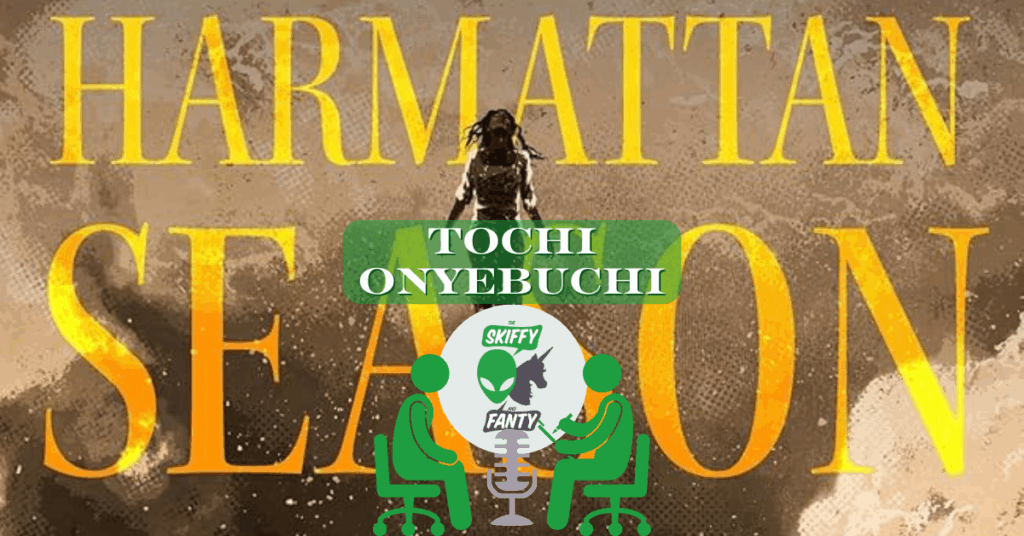
https://media.blubrry.com/skiffyandfanty/dts.podtrac.com/redirect.mp3/archive.org/download/sand-f-818-tochi-onyebuchi/SandF_818_TochiOnyebuchi.mp3Podcast: Play in new window | DownloadSubscribe: Apple Podcasts | Spotify | Android | Email | TuneIn | Deezer | RSSColonial cities, hard-boiled detectives, and murder, oh my! Shaun Duke and Trish Matson are joined by Tochi Onyebuchi for an in-depth interview about Harmattan Season! Together, they discuss the book’s West African setting, Tochi’s influences in and approach to detective fiction, the complex social influences of colonialism, and so much more! Thanks for listening. We hope you enjoy the episode!
Book Review: The Raven Scholar, by Antonia Hodgson

The main protagonist is pretty sympathetic to a nerdy pedant like me, with many other interesting characters; the worldbuilding is fascinating in its gradually broadening revelations; and the plot engages attention along multiple axes.
Book Review: Point of Hearts: A Novel of Astreiant, by Melissa Scott
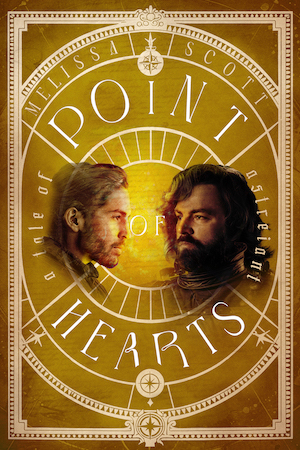
It was an engrossing read; the characters continue to be fully engaging and the protagonists sympathetic (even though not always in agreement with each other), and the rich worldbuilding continues with interdepartmental squabbling providing insights into the politics.
Book Review: Murder by Memory, by Olivia Waite
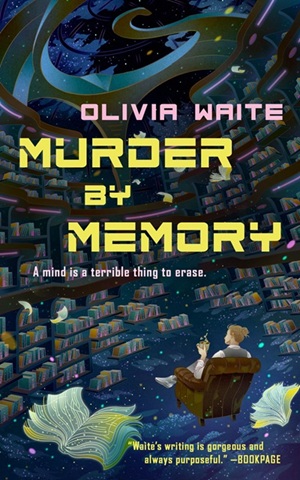
The novella starts when Dorothy Gentleman wakes up and discovers she’s been uploaded off schedule and into the wrong body, and she finds out soon that someone else is dead. As one of the ship’s detectives, she shelves her personal feelings (that’s my little in-joke) and immediately starts investigating.
Book Review: OUR WINTER MONSTER by Dennis Mahoney
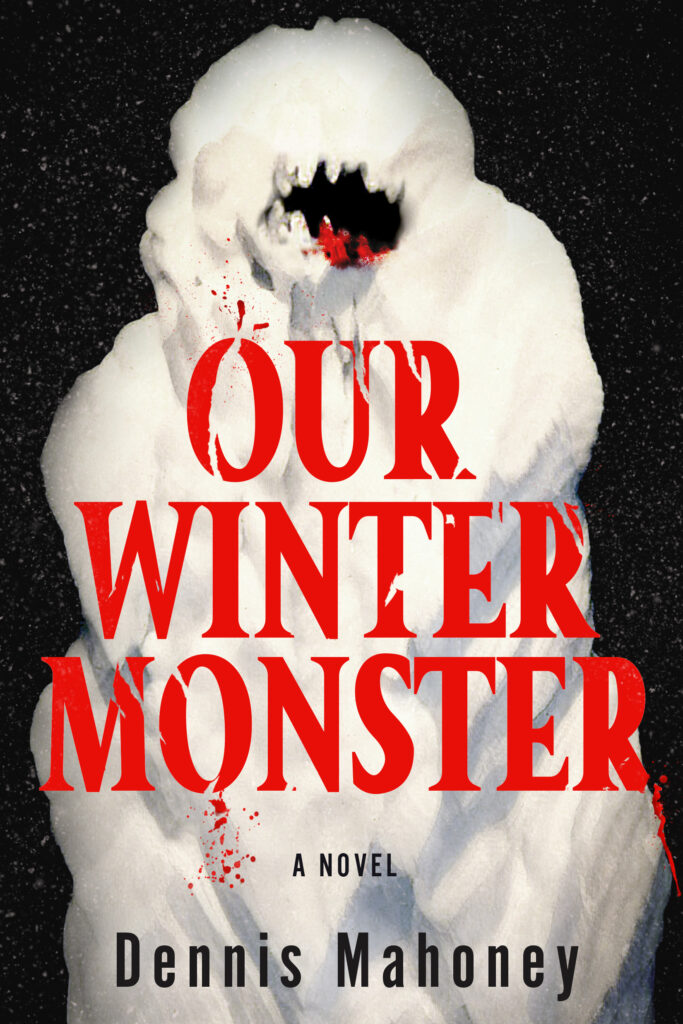
I’ve got a soft spot for winter horrors, where the frigid environment compounds human or supernatural threats. Perhaps its the dose of familiarity I have with winter’s beauty and winter’s dangers that makes the setting work so well for me in fiction. Anyone else who likes such seasonal scares should check out Our Winter Monster by Dennis Mahoney, just published by Hell’s Hundred Books, a new horror imprint from independent publishers Soho Press. As the chilly winds and ice continue outside, there’s no better book to curl up with under a warm blanket and a warm beverage at hand. As much as I enjoyed the novel and would recommend it to particular readers, Our Winter Monster has several weaknesses combined with its many strong points. These add up to a solid thriller that will entertain many general readers and horror fans, but which fails to achieve a potency or quality that its premise or Mahoney show potential for. The summary provided by the publisher for Our Winter Monster does a great job of succinctly relating the plot: For the last year, Holly and Brian have been out of sync. Neither can forget what happened that one winter evening; neither can forgive what’s happened since. Tonight, Holly and Brian race toward Pinebuck, New York, trying to outrun a blizzard on their way to the ski village getaway they hope will save their relationship. But soon they lose control of the car—and then of themselves. Now Sheriff Kendra Book is getting calls about a couple in trouble—along with reports of a brutal and mysterious creature rampaging through town, leaving a trail of crushed cars, wrecked buildings, and mangled bodies in the snow. To Kendra, who lost another couple to the snow just seven weeks ago, the danger feels personal. But not as personal as it feels to Holly and Brian, who are starting to see the past, the present, and themselves in a monstrous new light . . . Let’s start with some of the things I think Mahoney does really well with Our Winter Monster. The wintry environment is like a character unto itself, manifested into a monster of swirling ice and snow that evokes fear. As the plot summary suggests, the exact nature of this monster is a mixture of supernatural and psychological, a metaphoric manifestation of trauma in Holly & Brian’s past that they are partially trying to work though, and partially trying to ignore/forget. Psychological horror manifesting in physical ways is nothing new to horror, but Mahoney pulls this off very well, blending past and present through the novel. Where Our Winter Monster could easily be written more towards the thriller or mystery end of the genre spectrum, Mahoney solidifies the horror aspect with frightening images of the snow monster, the psychological fear of characters not being able to control themselves, and the violence/gore of the deaths. Characterization is one aspect of the novel that has both successes and failures. Holly and Brian stand out with the most development (understandably as the protagonists.) As the reader discovers more of their past and what is to come during this present night of trial, one can see a great arc in each of them as individuals as well as the two of them as a couple who love one another. Mahoney integrates these characters very well with the plot to show how their difficulties of relating to one another stem from the trauma that make them unsure of each of them, themselves. They have to learn how to face themselves and the individual decisions of their past. Yet, they find the strength to do this together. As the thematic core of Our Winter Monster, Mahoney does a phenomenal job in these characters and how they drive the plot. However, the secondary characters don’t come off as well. The amount that Kendra is in the novel necessitates deeper development then ends up being there. It seems as if her story should intersect in ways with Holly & Brian’s, yet I didn’t finish the novel with any sense of this being the case. Likewise, another secondary character, Tanner, could have been more fully developed, given how central he ends up being to the plot. I felt this particularly so because his role ended up feeling very predictable, even from his first appearance on the pages. Beyond being a horror novel through the story of Holly & Brian, Mahoney seems to be adding a mystery novel with the secondary characters, and this half just doesn’t have the same heart, resonance, or novelty to it. The other significant critique I would make of Our Winter Monster is that Mahoney tends toward fully explaining things to readers rather than letting ambiguity or subtlety rule. For an undemanding reader just looking for some entertaining diversion without having to invest too much focus, this approach will work on point. But an approach toward the other end of the spectrum would have helped make the novel into something more special. As I write this, I’m realizing Our Winter Monster is an interesting novel that straddles the line between mass market thriller for casual readers and psychological/supernatural horror novel for fans who are familiar with the genre tropes. By casting this bimodal net Mahoney’s book would probably capture the interest and admiration of both kind of readers while also leading to disappointing some from each camp. Perhaps because I’m fine with switching between the two branches of reading, even within a single work, the novel ended up scoring overall with me. Beyond this, I’m very interested in seeing what else Hell’s Hundred releases in the future.

